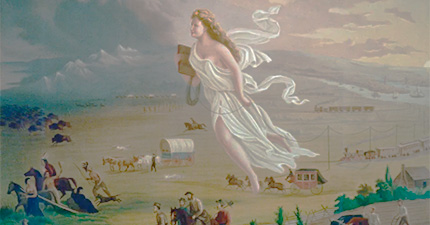In the book, Diaspora’s Homelands S Chen outlines a famous fight that Lu Xun had with Lim Boon Keng. Lim was a neo-Confucianist who had been born into the British colonized Malaysia and educated in Edinburgh. He was obsessed with Confucius, with female chastity, with heroes and junzi, and the potential to make China a modern nation using Confucianism as a vital force filled with authentic and indigenous culture. Of course, Lim seems to have confused many parts of Confucianism with Victorianism.
Lu Xun hated him. This stuck up diasporic Chinese guy who speaks English and can’t shut up about Confucius! The students hated Lim too. They left the school en masse and started a new school spoofing the school where Lim taught.
Lim wanted to revitalize the Chinese nation using Confucianism. Arif Dirlik talks about how intellectuals at the time wanted to rescue the “national essence” from imperial domination. Lim compared Confucianism to Christianity, declaring that Confucianism is an Asian religion that governs over social rites, timekeeping, morality, and behavior just as the Christian church governs over society in western nations. Chen describes this process of religion-making, a process in which both religious and secular thought are invented:
“A global phenomenon in the nineteenth and twentieth centuries, “religion-making” refers to the bifurcation of the religious and secular, a development accompanying the spread of modernity—a discourse of science, reason, and individualism associated with the Enlightenment—and forces of modernization such as urbanization, industrial and capitalist innovations, mass education and politics, and increased state power. During this process, colonial rule and national movements were intertwined with attacks on “superstitions,” reification of “religion” as a separate realm of moral ethics, and building a secular society. As long-existing multicultural communities in Southeast Asia became newly transformed by mass migrations and high colonialism, the region became a hotspot of religion-making in the modern era. There, Asian “religions,” including Confucianism, Islam, Hinduism, and Buddhism, were invented as comparable to one another, as each underwent a similar process of rationalization—an end to mythology, a return to “authentic” and “original” texts and values, and new assertions of compatibility with modernity.”
But there’s one problem with what Lim was trying to do. The problem is that Confucianism is not a religion.
Confucius was just some old guy who felt nostalgic for the Zhou kingdom. He had no success in his life. He lived in a time when feudal landlords became competing warlords and he wanted to use education to win himself a spot next to at least just one. There were a lot of guys who were trying to do the same thing at the time, creating Daoism, Moism, Legalism, etc. Confucius was probably the least successful. He ended up teaching classes in exchange for meat but he still had just a few students. A freelance educator who kept traveling around hoping that he would gain a powerful student but never did.
Confucius’s teachings were not very popular in Qin because all of his students were slaughtered. He was kind of popular in the bisexual and homosocial Han dynasty until Emperor Wu who really just loved Confucianism, social order, and imperialism. Confucius really just taught things using six or so books. He loved his male students and women didn’t exist to him. Now and then, his names get popular because people start to read those classics again but only among the governing class. Confucianism makes no sense if you are a normal person who is not a warlord, governor, or successor.
How is this a religion?
Confucianism is only a religion because it can make people do certain things, because it gives moral instruction and influences behavior, and because it clarifies the right to own or possess one’s culture. Lim, a diasporic Chinese Malay who is sometimes called a “baba”, didn’t feel like he had a right to possess culture. He was obsessed with the cultural authenticity that he thought Confucianism could offer.
Carl Jung also speculated on the question of who has the right to possess culture in his flirtation with Nazism. He wrote, “The Jewish race as a whole—at least this is my experience—possesses an unconscious which can be compared with the “Aryan” only with reserve…The “Aryan” unconscious has a higher potential than the Jewish; that is both the advantage and the disadvantage of a youthfulness not yet fully weaned from barbarism.” He wrote that National Socialism had helped Germany harness the “tension and energy” from “deep in the Germanic psyche.” Later, Joseph Campbell drew on Jung to promote the idea that modern heroism can be revitalized by connecting with ancient archetypes.
An end to mythology, a return to originality and authenticity, and the embrace of heroes along with scientific superstition.
Religion is superstitious but science is too. For me, because I live in the west, most of the conspiracy theories that I hear about and the superstitions that I see around me are not religious but scientific. They are superstitions about prehistory, about brain size, about capital, about legislation, and race. They are sociological myths about ancient civilizations.
These are nationalist myths. Lim wanted to revitalize the Chinese nation using Confucianism as a new religion. In the era of colonialism and nationalism, the nation replaced religion as the educator of society. In many places, young people started to receive education created by the national government and not the religious authorities. The Chinese language, which had grown out of the divination work of multiple shamans, became a system of national bureaucracy. Chinese medicine, which had formerly been the site specific work of folk doctors differing from village to village, became unified as a national institution.
Nationalism gives us many spiritual offerings—collective identity, the celebration of time’s passing through rituals, and historical memory. We demarcate and understand so much of land through borders, so much of time through national history, and so much of morality with national heroes.
I think that, today, we have this idea that religion is very old, that it records a world that has vanished under modernity. Most religions are not very old. Many new religions are created when people come into contact with colonialism as people try to define evil and organize into new groups. Religion itself, along with secularism, is a modern concept. Secularism, rationality, and liberalism was created to enchant colonized people from the trouble of perceiving, exploring, and making our own worldview. Religion is often oppressive but it’s not inherently not good or bad. There are just as many religions created for liberation work as there are death cults. But it’s not old. It’s not some old thing that can be compared with and contrasted to nationalism. Religion is very contemporary, very relevant, and very much changing all of the time. In fact, nationalism may be our most modern form of religion.
However, nationalism isn’t spirituality. Nationalism possesses our spiritual emotions and fools us into thinking that we belong based on manufactured belonging but it’s not real connection. Spirituality is about world exploration, about curiosity with one another. Spirituality is not an identity. No one can be a spirituality the way one is a citizen based on legal category. Spirituality is embodiment and practice. You can’t be a spirituality. You have to practice. Connection is action.
Nationalism is not about connection but about belonging and identity. What is our role in this world?, we ask ourselves. We try to answer that question with church and with nation. But our ontological questions, our questions about suffering and love and movement can’t be answered through identities based on border and territorial claim no matter how many heroes we are taught to love.
Confucianism is not ancient Chinese culture and Confucius is not a Chinese hero. The word China is a western misreading of a Japanese racial slur, reclaimed by nationalists, so how can Confucius who lived so long ago even be Chinese? Confucius was a stateless freelance teacher wandering disparate pieces of the fallen Zhou kingdom in the area that we currently call China. Most of Confucius’s words are made up. He never said them.
In the end, Lim was unsuccessful. His students rejected him, made fun of him for not being really Chinese, and he was mocked until he died. Just like Confucius, Lim was an educator living during the decline of an empire. Just like Confucius, Lim was politically homeless, endlessly nostalgic, and never saw his delusions gain popularity within his life. The man was 100% like Confucius, if Confucius was even a real person, until the very end of his life.
For me, my favorite neo-Confucianist is the internet troll Sister Feng. She is famous for going on TV and saying, “Confucius said that I deserve a boyfriend who is six feet tall, rich, and a graduate of Tsinghua University majoring in finance.” Why not? If Confucius appreciates the handsome aesthetics of a good junzi, then why can’t a very funny and cute girl from rural China who is trying to marry while living in the cities that she has moved to in order to work? What is the point of a hero if a hero can’t be mocked by normal people?
Just like Sister Feng now, I live in the United States. Americans have a very clannish mentality. We are always so concerned with belonging, with acceptance, and with inclusion. Even when we talk about the passage of time for the new year, we talk about what’s in and what’s out. I think that belonging is overrated. What does belonging matter if belonging is just about hating the same things as everyone else? Belonging is just another form of separation. Nationalism is dead. Heroism is dead. Long live making things up.
1 of 210
>>>


